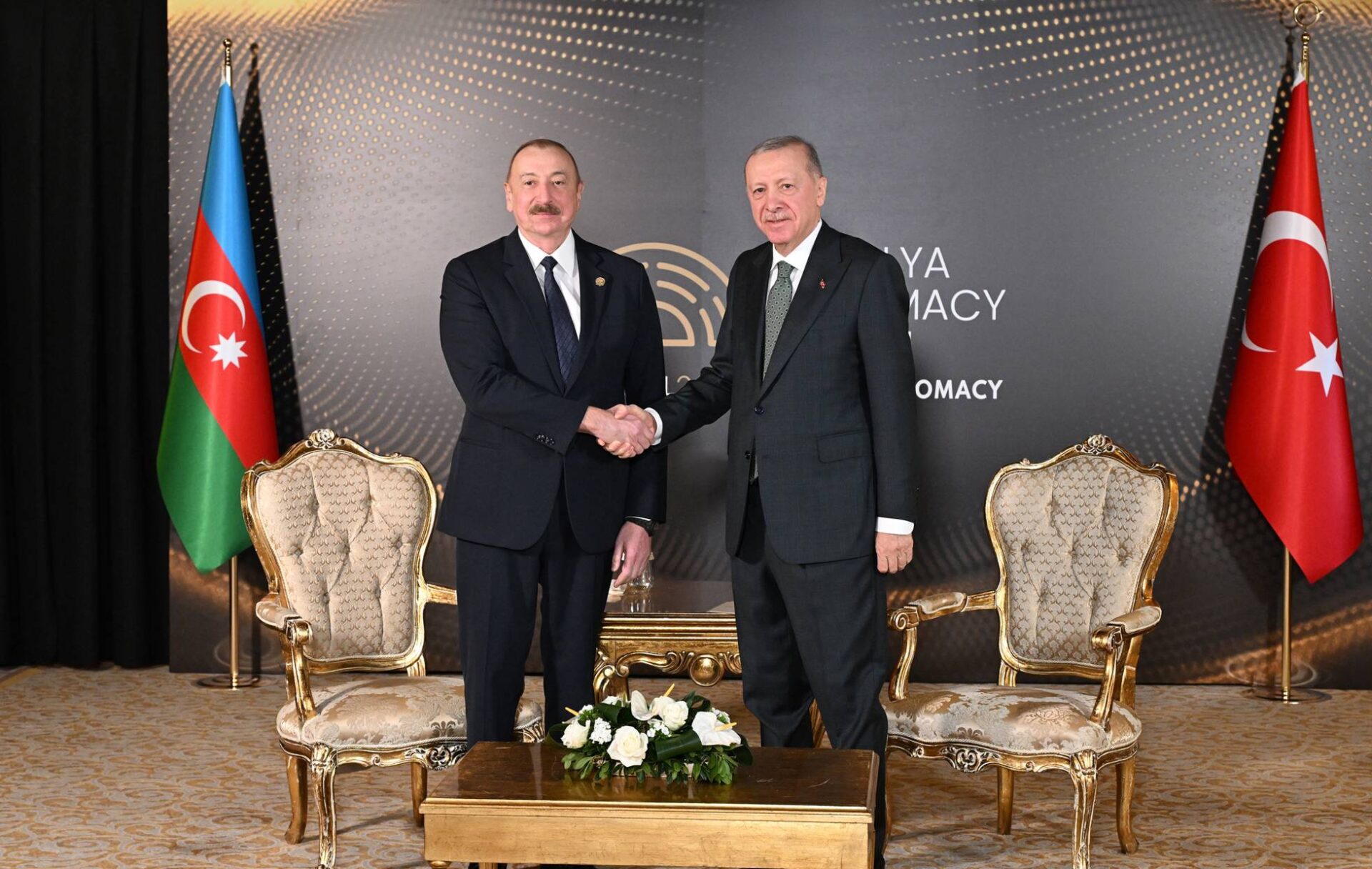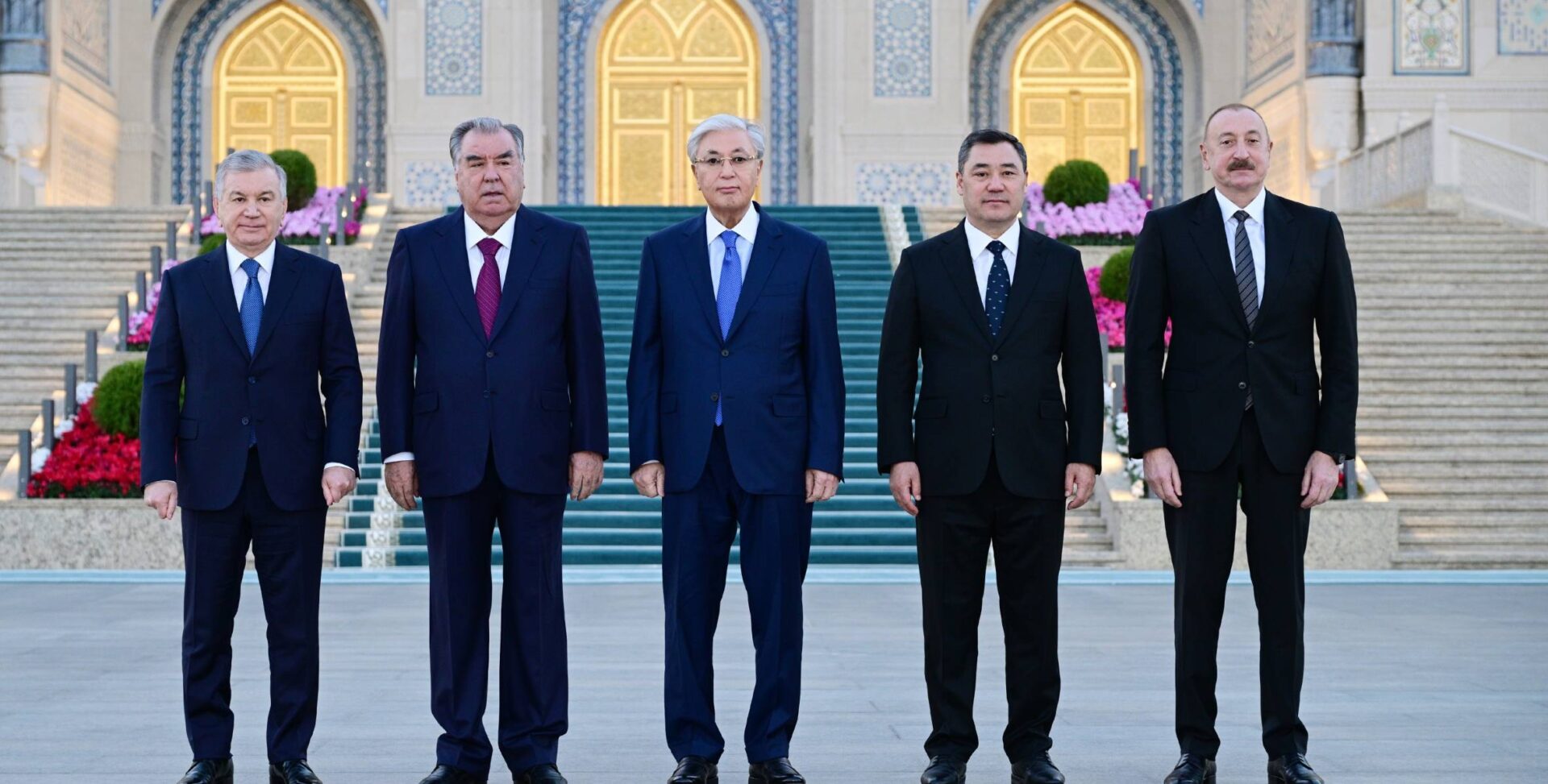
Türkiye Expands Military and Cultural Influence in Central Asia
Türkiye Expands Military and Cultural Influence in Central Asia
Executive Summary:
- Türkiye is capitalizing on the geopolitical crisis in Eurasia and some post-Soviet states to expand influence through cooperation with Central Asian governments in the form of increased diplomatic involvement and cultural integration.
- Ankara is also expanding its integration with Central Asian military economies, as, due to Russia’s war in Ukraine, Türkiye is able to fill needs traditionally met by Moscow.
- The Diyanet, Türkiye’s Ministry of Religious Affairs, is increasingly involved in cultural influence in the region, building mosques and providing humanitarian relief, religious instruction, educational initiatives, broadcasting, and scholarships for students.
In May, Numan Kurtulmuş, chair of the Turkish parliament, delivered a speech at Ahmed Yesevi University during an official visit to Kazakhstan. The location of the speech was no accident, as the university was founded in the city of Turkistan in newly independent Kazakhstan in 1991 as a sign of growing cooperation between Türkiye and the broader Turkic world. The speech emphasized that the “increasing strength of the Turkic world” should not be a source of global fear, instead claiming that the Turkic world has been a “guarantor of world peace.” Kurtulmuş also emphasized the “historic moment” that the two countries are experiencing and stated, “The political leadership and governments of both countries strive to develop mutual cooperation and maximize the existing potential” (TRTRussian, May 21). He elaborated that, at the moment, there is a crisis of global governance, which includes the shifting balance of power in Eurasia created by Russia’s full-scale invasion of Ukraine. Ankara’s expanding sphere of influence into Central Asia includes both high-profile activities, such as support for Azerbaijan in the Karabakh conflict , and more long-term cultural influence in the religious sphere (see EDM, October 2, 2023). As Russia’s regional influence wanes, Türkiye can fill the gap and become the new dominant power in the region, pulling on cultural similarities and historical ties.
Turkish President Recep Tayyip Erdogan emphasized the extent to which Russia’s war has altered global geopolitics in a January speech given at the 97th annual conference for Milli İstihbarat Teşkilatı, Türkiye’s intelligence service. He focused much of his remarks on a new era of rearmament and military modernization (YetkinReport, January 11). Türkiye has capitalized on the success of their drones on the battlefield in Ukraine to supply similar technology to Central Asia, developing relationships with the military-industrial bases of the Central Asian states (see EDM, December 20, 2023). Turkish Foreign Minister Hakan Fidan was notably absent from the intelligence service conference. Concurrently, he was participating in peace talks between Kyrgyzstan and Tajikistan when the two states were at risk of full-out war over border delimitation issues and the fate of exclaves (see EDM, November 3, 2022). Fidan expressed hope that the two sides would reach an agreement by March. His wish was fulfilled, demonstrating Türkiye’s diplomatic strength, as the two states successfully demarcated more of their shared borders several months later (Anadolu Ajansi, March 18).
Türkiye is also filling a gap in the Central Asian states’ economic sectors. For example, in April, Kyrgyzstan’s press noted that Russia is no longer in a position to supply the country with missile defense systems due to the ongoing war in Ukraine. Therefore, the country’s leadership is turning to Türkiye, both for supplying the platforms and for potentially creating a training center for the missile systems (Vechernyi Bishkek, April 24). These moves would disrupt the country’s long-standing dependency on Moscow and the Collective Security Treaty Organization for meeting Kyrgyzstan’s military needs by turning instead to Ankara.
In addition to diplomatic and military initiatives, the growing construction of mosques is the most visible symbol of Türkiye’s new reach. The Turkish Ministry of Religious Affairs, or Diyanet, has become a primary tool for the expansion of Ankara’s regional influence. The Diyanet sponsors humanitarian relief, religious instruction, educational initiatives, broadcasting, and scholarships for students to study at Turkish universities. This includes donations for Ramadan celebrations and other religious holidays. Russia’s Spiritual Administration of Muslims and the Diyanet signed a memorandum of cooperation in 2022 (Muslim.ru, December 8, 2022). The Turkish ministry also spreads its influence through the construction of mosques abroad. As of late 2023, the Diyanet had constructed 107 mosques abroad (Diyanet Haber, October 3, 2023). The ministry’s budget increased considerably in 2024, reaching $3.18 billion, and tens of thousands of additional officials have been hired in the last decade, with approximately 140,000 employees as of 2023 (doğrulukpayı, January 11).
In Central Asia, this initiative includes the Nur-Sultan Grand Mosque in Astana. Named for the first president of Kazakhstan, Nursultan Nazarbayev (1991-2019), it is one of the ten largest mosques in the world. The lead architect was Fettah Tamince, one of Türkiye’s most successful construction magnates and a friend of Erdogan (Anadolu Ajansı, August 12, 2022). Much of the mosque construction is being directly financed by the Turkish government. Diyanet’s largest project in Central Asia thus far is the Imam Serahsi Mosque, or Bishkek Central Mosque, which was financed by the ministry in 2018 and is designed to hold 30,000 people (Diyanethaber, August 31, 2018). Imam Serahsi was modeled on Kocatepe Camii, a mosque in Ankara, and the opening was attended by Erdoğan and Diyanet Minister Ali Erbaş (Milliyet, September 2, 2018). In Albania, the Diyanet-financed Namazgah Mosque, billed as the largest mosque in the Balkans, is soon approaching completion (Diyanet, accessed July 30). One of the most expensive construction projects includes the $170 million Central Mosque in Moscow, designed in classic 17th-century Ottoman style, completed in 2015. It can house 10,000 worshippers (BirGün, December 19, 2019).
Erdogan’s government has also used Diyanet to pressure other Islamic organizations in Eurasia to cease cooperation with what Ankara refers to as the “Fethullah Gülen Terrorist Organization” following the aftermath of the 2016 coup attempt in Türkiye (Turkish Foreign Affairs Ministry, accessed July 30). “We will not collaborate with any organization or individual who acts together with the Gülen Terror Group,” the director of Diyanet stated at a conference in Kazakhstan in 2022 (Diyanet, May 6, 2022). Türkiye’s intelligence service abducted Orhan İnandı, the supposed head of Gülen’s network in Central Asia, later that summer and sentenced him to 21 years in prison in August 2023 (Anadolu Anjansı, August 16, 2023).
Ankara’s expansion of influence in the broader Turkic world has been a leitmotif of Turkish foreign policy since the end of Soviet domination over the Caucasus, Russia, and Central Asia. This activity is worth noting, particularly since researchers studying global trends and international influence among the global Sunni ulema have traditionally focused on the role of the Arab Gulf countries. Additionally, much focus has often been given to Russia and China when mapping influence in Central Asia. Türkiye’s expanding influence could shift the geopolitical center of the region from Moscow to Ankara, further reducing Russia’s and, to a degree, China’s regional power.


